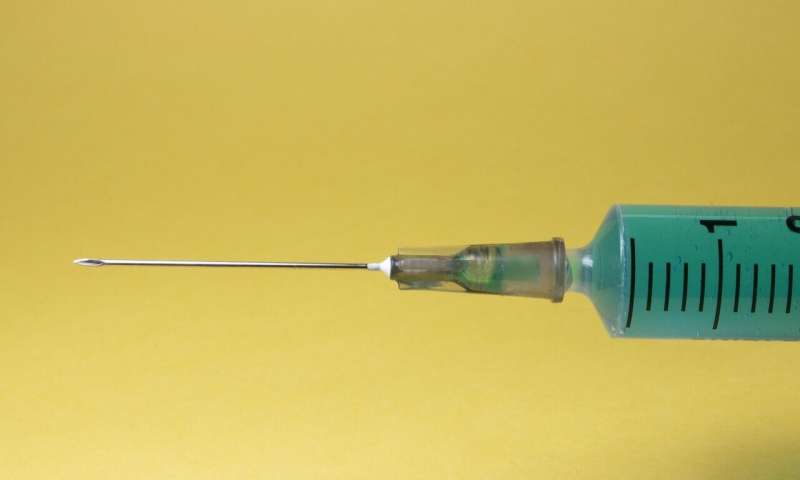This article has been reviewed according to Science X's editorial process and policies. Editors have highlighted the following attributes while ensuring the content's credibility:
fact-checked
trusted source
proofread
New material discovery could revolutionize roll-out of global vaccinations

New raw vaccine materials that could make vaccines more accessible, sustainable, and ethical have been discovered. The results of the research have been published in Polymers.
Adjuvants are vaccine ingredients that boost a person's immune response to a vaccine, providing greater protection against disease. One of the most prevalent adjuvant materials used in vaccines is squalene, which is typically sourced from shark livers.
Researchers at the University of Nottingham collaborated with the Access to Advanced Health Institute (AAHI) to identify synthetic alternatives to squalene that ensure sustainable, reliable, and ethical sourcing of adjuvant raw materials for vaccines moving forward.
New synthetic adjuvant materials were developed from commercially available methacrylate monomers, ensuring that a reliable supply of the material is continually available.
The combination of these adjuvant materials are scalable through catalytic chain transfer polymerization, a process that allows high levels of control over the molecular weight of the product polymer. Controlling the molecular weight is key to the use of adjuvant material in formulations for vaccines as it allows for purification in the manufacturing process and optimizes biological responses following immunization.
Professor Derek Irvine, professor of materials chemistry in the University of Nottingham's Faculty of Engineering, said, "At the moment, there are very few adjuvants approved for commercial use, so the need to find a squalene alternative is of vital importance to ensure greater access to vaccines worldwide.
"Our research has found that squalene emulsions were physically stable for less than three months at 40 degrees centigrade. Whereas our synthetic adjuvant materials produced emulsions that remained physically stable for up to 18 months at the same temperature and caused an innate immune response when tested with human cells. This could be hugely significant when it comes to increasing accessibility in developing areas of the world that don't have ready or consistent access to the fridges or cold storage required for existing vaccines."
The university's Faculty of Engineering worked alongside the School of Chemistry to synthesize and design the adjuvant materials. These were then sent to AAHI, where they were formulated as emulsions, tested for potential toxicity and innate immune stimulation using in vitro bioassays, and assessed for physical stability.
"Identifying sustainably sourced adjuvant materials enables the development of vaccine formulations without relying on sharks and may provide additional benefits such as enhanced stability," says Dr. Christopher Fox, senior vice president of formulations at AAHI.
The team is now looking at more comprehensive evaluation of vaccine-specific immune responses to the new materials, as well as how the material production process can be scaled up.
More information: Cordula S. Hege et al, Screening of Oligomeric (Meth)acrylate Vaccine Adjuvants Synthesized via Catalytic Chain Transfer Polymerization, Polymers (2023). DOI: 10.3390/polym15183831
Provided by University of Nottingham





















